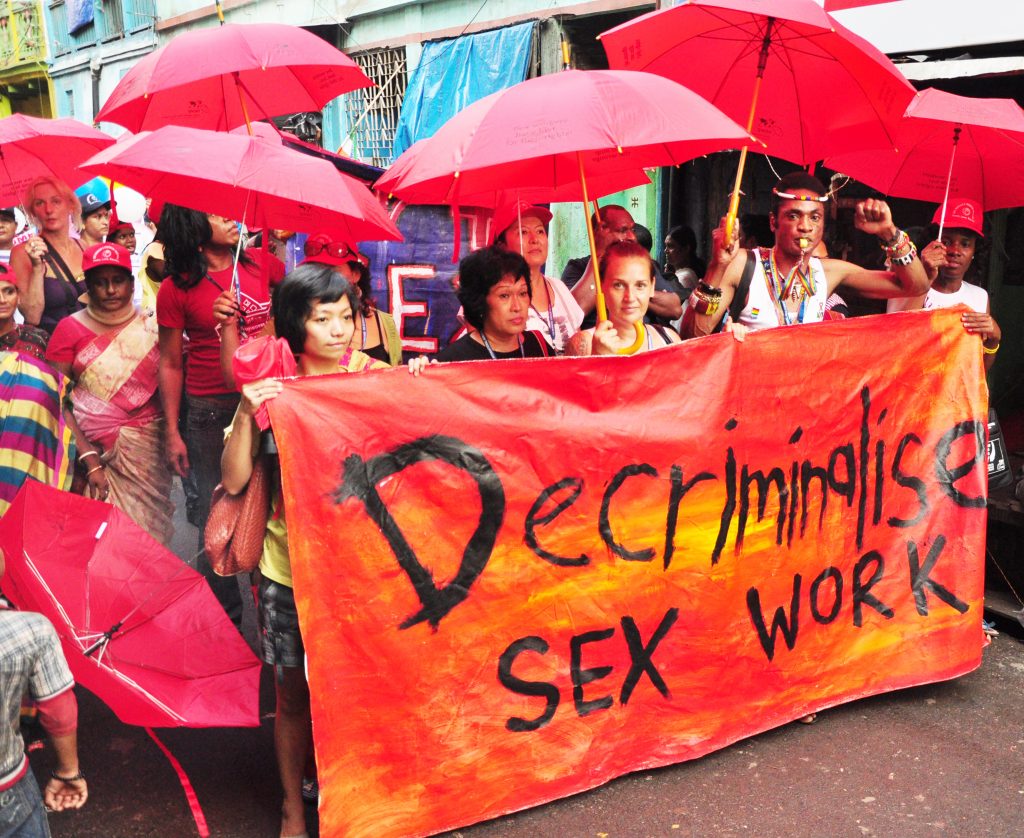Delivering a historic ruling, the Supreme Court of India has recommended that sex work by consenting adults should be legal. Releasing a small set of guidelines on sex workers, the top court said prostitution is a profession and sex workers are entitled to equality, dignity, and protection from the law of the land, a demand sex workers have been pressing for a long time.
They should not be harassed or arrested during a police operation against illegal sex activities such as forced prostitution or trafficking. The child of a sex worker can’t be separated from the mother, the apex court said in the guidelines, defining a sex worker as an adult “doing so subject to consent.”
The top court observed, “It need not be gainsaid that notwithstanding the profession, every individual in this the country has a right to a dignified life under Article 21 of the Constitution of India.”
The Supreme Court issued these guidelines in exercise of its power under Article 142 of the Indian Constitution on May 19 and these are based on the recommendations of a panel appointed by the court in 2011 on the rehabilitation of sex workers.
The SC has asked for the opinion of the Indian government and the next hearing is on July 27. Despite its hallowed judicial system distinguished by an extensive body of laws, India is yet to come up with a law on sex workers. In this light, the Indian government’s opinion is keenly awaited.
Meanwhile, speaking at an event organised in the red light area of Pune’s Budhwar Peth, Amrita Fadnavis, wife of former Maharashtra CM Devendra Fadnavis, on June 12 demanded that the government should recognize sex work as a profession. She also asked the government to ensure the welfare of sex workers.
“Like other professionals, prostitutes should also get respect and be able to live with dignity. The government must accept it as a profession,” she said.
The 43-year-old banker, singer, and social worker who describes herself as an “unadulterated free spirit” on her Instagram status, Amruta Fadnavis has often shown her social side, something that is increasingly missing in other women from political families.
Recently, Amruta Fadnavis walked the Cannes 2022 Red Carpet in a stunning black and silver gown to raise awareness about food, health, and sustainability on behalf of the Better World Fund. She was accompanied by the likes of Hollywood star Sharon Stone, Kiera Chaplin, granddaughter of Charlie Chaplin, Lebanese-Jordanian Princess Ghida Talal, and the First Lady of Ivory Coast Dominique Ouattara.
In February this year, she triggered a meme riot on social media by claiming that 3% of the divorce in Mumbai is due to potholes and traffic jams as people are not able to spend enough time with their spouses.
Reacting to Amruta Fadnavis’ strange correlation between bad quality roads and the divorce rate in Mumbai, Shiv Sena’s Rajya Sabha MP Priyanka Chaturvedi, who had left the Congress alleging sexual harassment, said the best Illogical award should go to Amruta.
“Best (il)logic of the day award goes to the lady who claims 3 percent Mumbaikars are divorcing due to traffic on roads. Please take a holiday break rather than having a mind on brake. Bengaluru families please avoid reading this, this can prove fatal for your marriages,” she tweeted.
At Pune’s red light area, Amruta inaugurated a health check-up camp and distributed Sukanya Samridhi Yojana cards. She talked about safe sex practices and the dangers of sexually transmitted diseases, asking sex workers to go for regular health check-ups.
There is no official or updated data available on the number of sex workers in India. A 2016 data says it’s roughly 7.5 lakh while unofficial estimates show that the number could be anywhere between 3 million to 10 million.
In the Indian context, the government’s indifference to the state of vulnerable women is appalling. Millions of them are living a life of vagabonds, begging on the streets and sleeping on the pavements while the conscience of the nation stands in tatters!
The entire nation gets into a frenzy when there is a talk of the temple or the prophet but none seem to be perturbed at the plight of the ordinary women. Uneducated and unskilled, they are unable to find employment, assert their rights, or access even basic health care.
Worldwide, there are about 40 million sex workers and many countries have clear regulations for the trade. By not having legal clarity on the matter, India is betraying its most vulnerable class of people – the women on the margins. For many of them, the line between hunger and hope is very thin. (IPA Service)




 Pak Recognition Of Israel Is A Matter Of Time
Pak Recognition Of Israel Is A Matter Of Time 